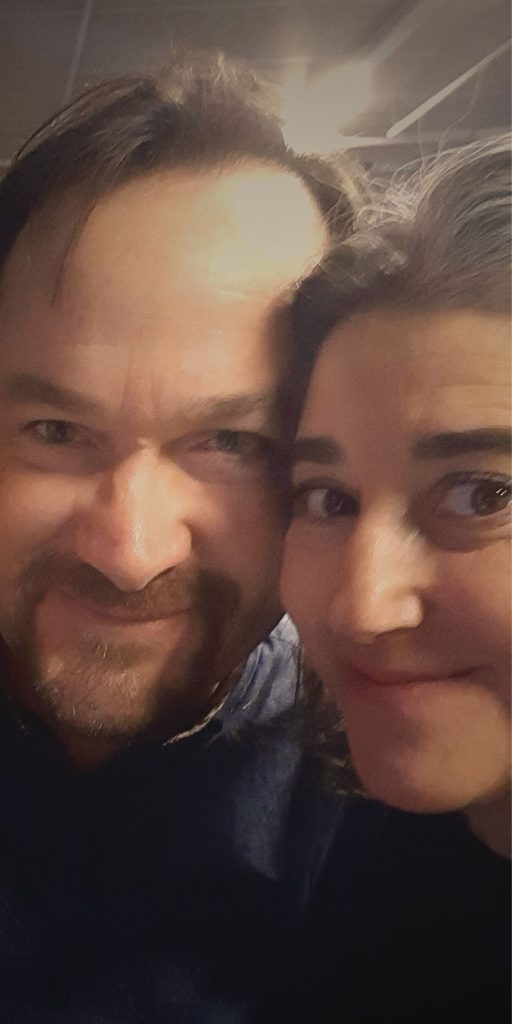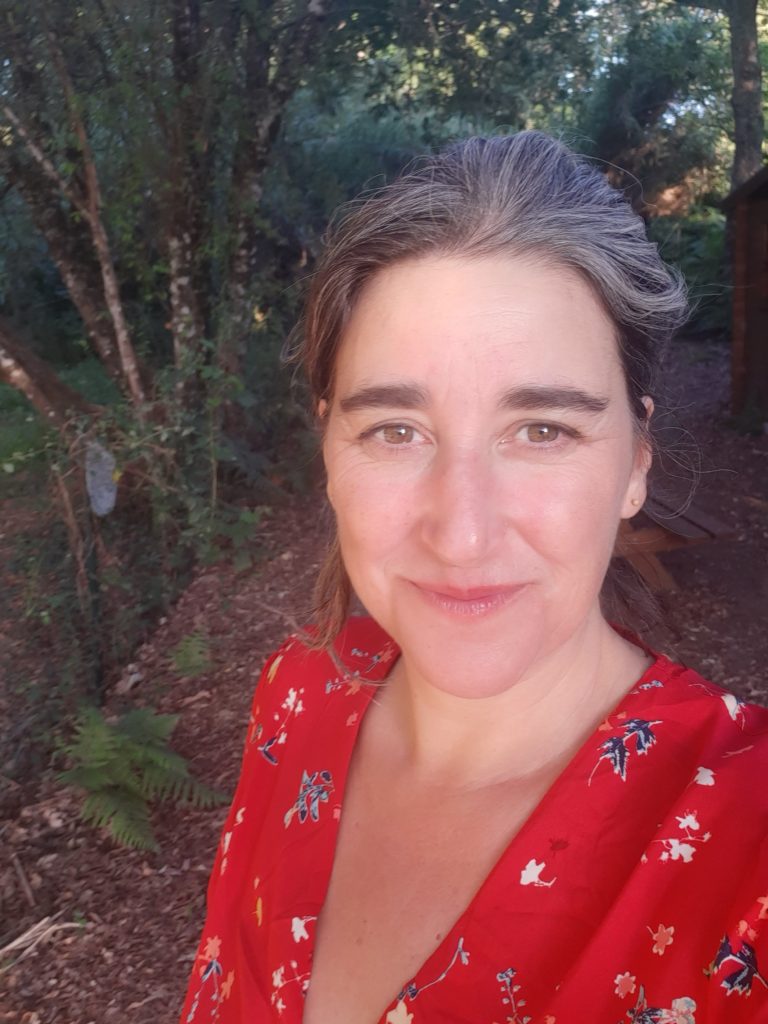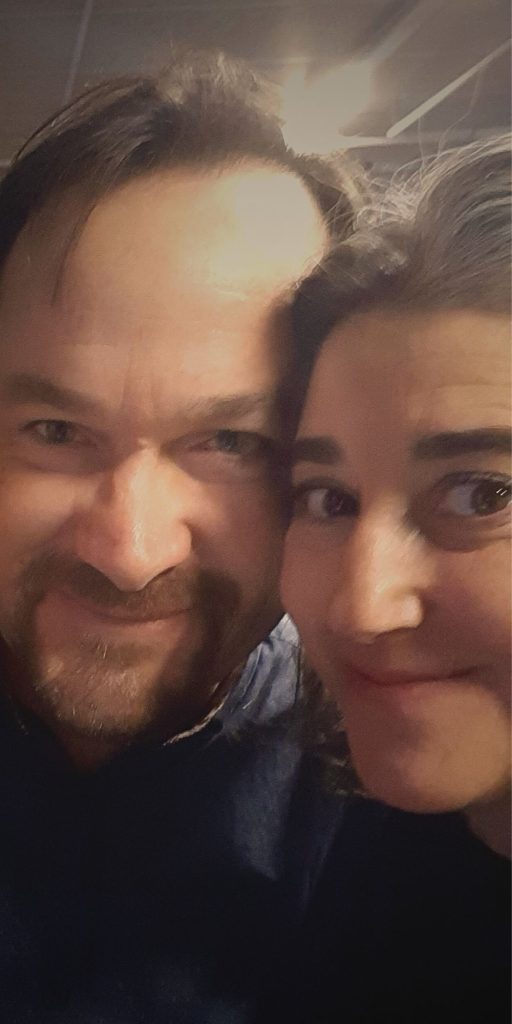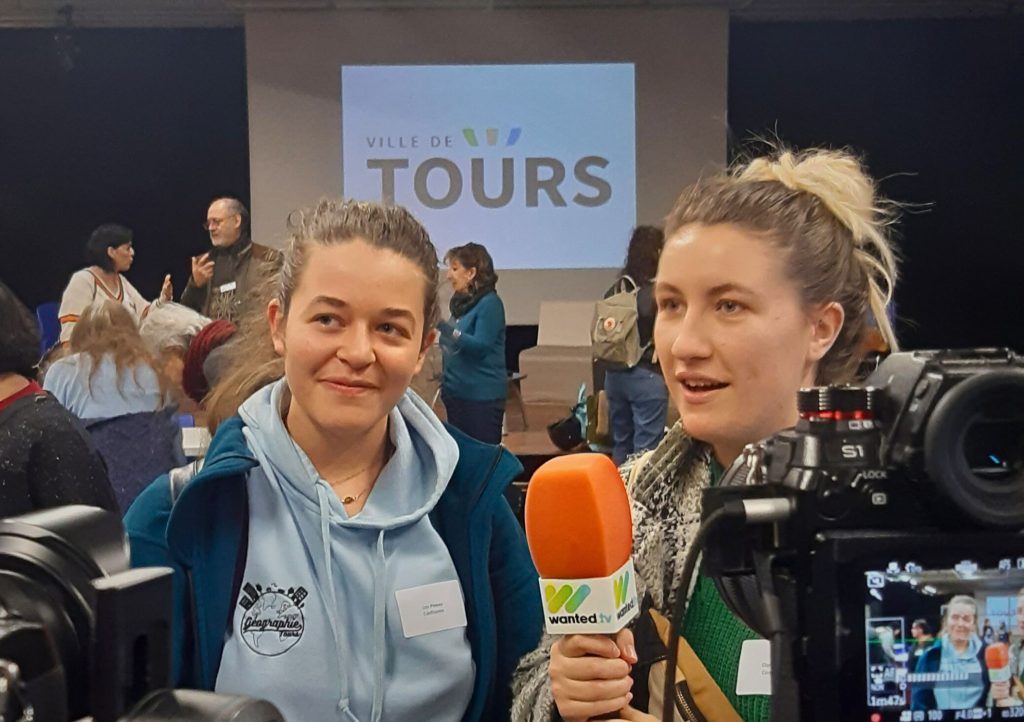Sobre ‘relacionar-se’: consigo mesmo, com velhos amigos e com comunidades inteiras
By Filipa Pimentel 16th January 2024
Estou aqui a pensar como os ‘ciclos’ pautam a minha existência – toda, tanto pessoal como profissional. E se eu sinto em mim ciclos claros, curtos, como os das estações do ano do lugar do mundo onde eu cresci e como os ciclos anuais, há outros mais difíceis de reconhecer: são ciclos tão largos que só se permitem ver se o observador mantiver uma presença consciente e constante, seguindo um enfiamento temático.
Um ano terminou e outro começa e, neste período entre terminar e começar, eu limpo e arrumo a ‘casa’ – essa é a intenção. Este é um momento importante para mim e para a minha saúde mental – viro-me para dentro, reflito, tento fechar os ciclos que estão concluídos, detecto padrões que adivinham ciclos em curso e crio espaço para outros se iniciarem. É também um exercício que temo: tenho medo do processo que me obriga a sentir ao tentar encontrar sentido neste nosso mundo carregado de incoerências, trauma e dor – temo desequilibrar-me e deixar de estar em controlo do meu exercício de esperança activa. Enfim, como ainda sinto a tal esperança, concluo que o meu processo interno desta época correu bem 🙂
O tema da inclusão e da ‘narrativa’ de transição tem sido um dos mais recorrentes entre ativistas do Movimento de Transição. O Movimento de Transição é muitas vezes descrito como uma rede de aprendizagem e nunca me canso de fazer lembrar que é importante aprender com as experiências no terreno, nas iniciativas locais. Para isso, os canais entre os espaços de experimentação e os vários níveis do movimento têm que estar funcionais e abertos. Passei algum tempo a reflectir neste tema durante este meu processo de fim/começo de ano, enquanto observava um outro ciclo – um ciclo lindo de uma amizade e colaboração de Transição, que é disto que é feito um movimento – ligações humanas:
Velhos amigos e iniciativas locais
O Benoît (Benoît Thevard) é um amigo querido de muitos anos (tantos anos quantos eu tenho de Transição) por quem eu tenho uma grande admiração – activista de Transição; co-fundador membro de umas das mais antigas iniciativas de Transição de França – Chateauneuf-sur-Loire en Transition – e representante do Hub de Transição do ‘Loiret’, em França; autor de publicações sob o tema da transição (aqui). É daqueles amigos que, estando muito tempo distantes, reaparecem em ciclos largos – no nosso caso, para colaborarmos em momentos-chave do trabalho de um ou do outro – este foi um desses momentos, certamente.
O Benoît co-organizou o evento ‘Transição nos Bairros prioritários a partir da abordagem narrativa’ ao concluir um projecto europeu que se inspirou numa experiência muito inspiradora de transição sistémica na cidade de Loos-en-Gohelle, a partir da qual se desenvolveu uma metodologia baseada na abordagem narrativa pela mão da Fabrique des Transitions – 8 de Dezembro, em Tours, França. Eu estive presente.
Este evento inspirou-me muito pelo que foi dito, pela forma, e pela participação inclusiva. Há muito que revisitar, reflectir, explorar e trazer à luz para que a polinização cruzada com outros projectos similares se faça, mas por agora, deixo um áudio de uma primeira conversa com o Benoît, em francês, ainda muito cansados, depois do evento e ao fecharmos o ciclo do nosso re-encontro – logo veremos como se abrirão os tais canais e os novos ciclos!
Para garantir que a partilha acontece, e se o francês não for uma língua que se encontre na vossa caixa de ferramentas, fiz uma transcrição da conversa com o Benoît, tomando alguma liberdade na edição, quando pensei que fosse necessário clarificar o que estava a ser dito:

Filipa: Benoit,…
Benoît: Oui, Filipa!
Filipa: Então, estamos aqui sentados, no dia seguinte a um evento, em Tours (França). Conta-nos: qual era o título desse evento? Falámos de quê, nesse evento?
Benoît: Este foi um evento de disseminação, que marcou o fim de um projecto europeu Erasmus+ baseada na utilização da ‘abordagem narrativa’’ (mise en récits) a fim de favorecer a transição ecológica nos bairros ditos ‘prioritários’ [i.e vulneráveis, muito desvalorizados].
Filipa: Ok. E eu estive presente. Tu convidaste-me a vir a Tours, relembra-me porquê – que papel viste que eu teria, ao estar presente?
Benoît: Tu estiveste presente porque a Transition Network apoiou o projecto desde o seu início. A Transition Network assinou uma carta de endosso no momento da apresentação da candidatura ao Programa Erasmus+, tu e a Transition Network consideraram que este projecto era pertinente, quer dizer – trabalhar a questão da transição dos bairros prioritários. Por isso, vocês foram uma parte interessada e activa da história, logo no início do processo. Além do mais, como este é um projecto europeu, foi-nos pedido para apresentar uma lista de parceiros europeus (de fora de França) e foi assim que te convidámos – porque pensámos que seria bom e natural que estivesses connosco neste dia.
Filipa: Então, este evento foi como um fechar de ciclo, certo?
Benoit: Foi um fechar de ciclo, sim. Melhor, ao mesmo tempo, uma jornada de clausura e uma jornada de lançamento – foi, de facto, um dia pautado em 2 tempos: de manhã, um momento mais institucional com a presença de membros eleitos e representantes de entidades públicas vários os níveis (locais, regionais, nacionais), membros de associações e de organizações locais diversas e de bairros de outras cidades e, na parte da tarde, oficinas (workshops) e sobretudo dedicado à compreensão do que é a ‘abordagem narrativa’ e sobretudo permitir que outros actores do bairro compreendam e tomem parte activa nesta aventura e que seja o princípio de qualquer coisa também no bairro de Sanitas em Tours. Em conclusão, de manhã fechou-se o ciclo e, à tarde, abriu-se um novo ciclo, justamente no Bairro de Sanitas, em particular.
Filipa: ‘Sanitas’ – que tipo de bairro é Sanitas?
Benoit: Sanitas é um dos bairros populares mais pobres de França, com uma grande densidade populacional – tem mais de 8.000 habitantes, numa superfície pequena, e a particularidade é que é um bairro situado no centro da cidade de Tours, mesmo ao lado da estação de comboios – em geral, este tipo de bairros, muito grandes, encontram-se na parte exterior das cidades, ao que chamamos ‘subúrbios’. E aqui, este bairro está no centro da cidade e, sendo um bairro extremamente pobre lado-a-lado com bairros extremamente ricos. Neste bairro eu penso que são faladas mais uma centena de línguas, e é de uma diversidade cultural imensa e muitas acções, de actores sociais implicados. Enfim, por um lado, um bairro extremamente rico, em tantas perspectivas, mas onde há também alguma violência, prostituição, droga, etc, tantas vezes associadas a este tipo de bairros, em que há uma condição de vulnerabilidade e precaridade importante.
Filipa: E à parte de tudo a que temos acesso, porque há um documento [e outros recursos] que vou partilhar na nossa rede, [onde podemos ler sobre o projecto, metodologia e o que se concluiu], tenho uma última questão para ti: se tivesses que escolher contar-nos uma coisa que descobriste (ou que aprendeste) ao longo deste projecto, que te marcou, o que seria?
Benoit: Este projecto mudou a minha abordagem da ‘Transição’. Eu tinha uma perspectiva da ‘transição’. Eu tinha uma maneira de abordar o assunto com que me rodeava, ou com os outros, que era particular – eu participava em muitas conferências como orador sobre a transição energética para falar de resiliência, para falar sobre ‘cidades em transição’, com a expectativa de fazer compreender os desafios e seduzir o público usando os elementos do ‘Manual de Transição’ – da dependência ao petróleo e da resiliência local – e ao trabalhar com os membros deste bairro, dei-me conta que não podemos falar destes temas desta maneira e que, de facto, esse nem sequer é o assunto relevante: muita gente nem sequer tem automóvel, não têm um salário assegurado com a continuidade de um mês após outro, muitas vezes não têm como pagar a conta para aquecer a casa. Por isso, falar de transição ecológica [no contexto de redução da pegada ecológica], não tem sentido nenhum porque são pessoas que já estão num nível de vida que é extremamente baixo e que o seu impacto no nosso planeta, na nossa biosfera, é reduzido.
A coisa mais importante que eu retenho deste trabalho, é o facto de que hoje, nestas culturas, nestas populações, as condições são ‘ecológicas’ de base. Quero dizer: não é uma ecologia demonstrativa – é muitas vezes uma ecologia associada à vergonha, em que se fazem coisas por necessidade, muitas vezes uma ecologia cultural porque as pessoas trazem consigo uma cultura profunda de partilha, de ser solidário, de reciclar, de recuperar recursos, etc. Uma grande lição que tivemos é que a Transição, neste contexto, é realçar essas coisas que hoje chamamos de ‘gestos ecologistas’ e fazer o que é necessário que deixem de estar associados a uma coisa vergonhosa, que seja associada a uma identidade como objecto de orgulho, que se torne inspirador para outros e que, progressivamente, seja o novo modelo a seguir, o novo modelo dominante.
Filipa: Obrigada
Deixo-vos ainda, caso queiram saber sobre o projecto e sobre o tema:
- A informação sobre o projecto, em várias línguas (Francês, Inglês, Portugues, Italiano)
- O relatório de estudo
- O guia Metodológico (Francês e Inglês)
___________
This post is part of Filipa Pimentel’s regular reflections about life in the Transition Movement. Filipa connects personal experiences and reflections to the wider work the movement is doing in the world. Her roles as Co-Lead Link of Transition Network and many years as Hubs coordinator inform her perspectives and reflections; so does the work Filipa does at local and regional levels in various places. These reflections are published in Filipa’s first language: Portuguese.
A bit more about Filipa:

“I feel that the connection between transitioners is magical: there is this feeling that we belong to the same family, even if we are coming from such different parts of the world, backgrounds, cultures, experiences, languages, contexts. The openness to learn and the capacity to listen actively, the compassion and the creativity are just some of the rare qualities I see around me while working in this field.”
On relating: With oneself, old friends and whole communities.
I’m thinking about how ‘cycles’ guide my existence – all of it, both personal and professional. And while I can feel clear, short cycles in me, like the seasons in the part of the world where I grew up and the annual cycles, there are others that are more difficult to recognise: they are such long cycles that they can only be seen if the viewer maintains a conscious and constant presence, following a thematic thread..
One year has ended and another begins and, in this period between ending and beginning, I clean and tidy the ‘house’ – that’s the intention. This is an important time for me and for my mental health – I turn inwards, reflect, try to close the cycles that are finished, detect patterns that hint at ongoing cycles and create space for others to begin. It’s also an exercise I dread: I’m afraid of the process I’m forced to feel when trying to find meaning in this world of ours full of inconsistencies, trauma and pain – I’m afraid of getting off balance and no longer being in control of my exercise of active hope. Anyway, as I still feel that hope, I conclude that my internal process this season has gone well 🙂
The theme of inclusion and the ‘narrative’ of transition has been one of the most recurrent among Transition Movement activists. The Transition Movement is often described as a learning network and I never tire of reminding people that it’s important to learn from experiences on the ground, from local initiatives. For this to happen, the channels between the experimentation spaces and the various levels of the movement have to be functional and open. I spent some time reflecting on this theme during my end of year/beginning of year process, while observing another cycle – a beautiful cycle of Transition friendship and collaboration, which is what a movement is made of – human connections:
Old friends and the grassroots
Benoît (Benoît Thevard) is a dear friend of many years (as many years as I have in Transition) for whom I have great admiration – Transition activist; co-founder member of one of the oldest Transition initiatives in France – Chateauneuf-sur-Loire en Transition – and representative of the ‘Loiret’ Transition Hub in France; author of publications on the subject of transition (here). He’s one of those friends who, having been away for a long time, reappear in long cycles – in our case, to collaborate at key moments in each other’s work – and this was certainly one of those moments.
Benoît co-organised the event ‘Transition in Priority Neighbourhoods from the narrative approach’ at the end of a European project that was inspired by a very inspiring experience of systemic transition in the city of Loos-en-Gohelle, from which a methodology based on the narrative approach was developed by Fabrique des Transitions – 8 December in Tours, France. I was there.
This event really inspired me because of what was said, the form and the inclusive participation. There’s a lot to revisit, reflect on, explore and bring to light so that cross-pollination with other similar projects can take place, but for now, I’ll leave you with an audio of a first conversation with Benoît, in French, still very tired, after the event and as we close the cycle of our reunion – we’ll see how these channels and new cycles open up!
To make sure the sharing happens, and if French isn’t a language you have in your toolbox, I’ve transcribed the conversation with Benoît, taking some liberties with the editing when I thought it was necessary to clarify what was being said:

Filipa: Benoit,…
Benoît: Oui, Filipa!
Filipa: So, we’re sitting here the day after an event in Tours (France). Tell us: what was the title of that event? What did we talk about at the event?
Benoît: This was a dissemination event, which marked the end of a European Erasmus+ project based on the use of the ‘narrative approach’ (mise en récits) in order to favour ecological transition in so-called ‘priority’ [i.e. vulnerable, very undervalued] neighbourhoods.
Filipa: OK. And I was there. You invited me to Tours, remind me why – what role did you see me playing by being there?
Benoît: You were there because Transition Network supported the project from the start. Transition Network signed a letter of endorsement at the time of submitting the application to the Erasmus+ Programme, and you and Transition Network felt that this project was relevant, that is – to work on the issue of the transition of priority neighbourhoods. So you were an interested and active part of the story right from the start. What’s more, as this is a European project, we were asked to present a list of European partners (from outside France) and that’s how we invited you – because we thought it would be good and natural for you to be with us on the day.
Filipa: So this event was like a closing of the loop, right?
Benoit: It was a closing of the loop, yes. It was better, at the same time, a day of closure and a day of launch – it was, in fact, a two-day event: In the morning, a more institutional moment with the presence of elected members and representatives of public bodies at various levels (local, regional, national), members of associations and various local organisations and from neighbourhoods in other cities and, in the afternoon, workshops and above all dedicated to understanding what the ‘narrative approach’ is and above all allowing other actors in the neighbourhood to understand and take an active part in this adventure and for it to be the start of something in the Sanitas neighbourhood in Tours too. In conclusion, in the morning the cycle closed and in the afternoon a new cycle opened, precisely in the Sanitas neighbourhood in particular.
Filipa: ‘Sanitas’ – what kind of neighbourhood is Sanitas?
Benoit: Sanitas is one of the poorest working class neighbourhoods in France, with a high population density – it has more than 8,000 inhabitants, on a small surface area, and the particularity is that it is a neighbourhood located in the centre of the city of Tours, right next to the train station – in general, these types of neighbourhoods, which are very large, are found on the outside of cities, what we call ‘suburbs’. And here, this neighbourhood is in the centre of the city and, being an extremely poor neighbourhood, side-by-side with extremely rich neighbourhoods. In this neighbourhood, I think more than a hundred languages are spoken, and there is an immense cultural diversity and many actions, social actors involved. On the one hand, it’s an extremely wealthy neighbourhood, from so many perspectives, but there is also some violence, prostitution, drugs, etc., so often associated with this type of neighbourhood, in which there is a condition of vulnerability and precariousness.
Filipa: And apart from everything we have access to, because there’s a document [and other resources] that I’m going to share on our network, [where we can read about the project, methodology and what was achieved], I have one last question for you: if you had to choose to tell us one thing you discovered (or learnt) during this project, that made a difference to you, what would it be?
Benoit: This project changed my approach to ‘Transition’. I had a perspective on ‘transition’. I had a particular way of approaching it – I used to go to a lot of conferences as a speaker on the energy transition to talk about resilience, to talk about ‘cities in transition’, with the expectation of making the challenges understood and seducing the audience using the elements of the ‘Transition Handbook’ – oil dependency and local resilience – and working with the members of this neighbourhood, I realised that we can’t talk about these issues in this way and that, in fact, it’s not even the relevant issue: Many people don’t even have a car, they don’t have a guaranteed salary from one month to the next, they often can’t afford to pay the heating bill. So talking about ecological transition [in the context of reducing the ecological footprint] makes no sense at all because these are people who are already living at an extremely low standard and their impact on our planet, on our biosphere, is reduced.
The most important thing I take away from this work is the fact that today, in these cultures, in these populations, the conditions are basic ‘ecological’. I mean: it’s not a demonstrative ecology – it’s often an ecology associated with shame, where people do things out of necessity, often a cultural ecology because people bring with them a deep culture of sharing, of solidarity, of recycling, of recovering resources, etc. A great lesson we’ve learnt is that the Transition, in this context, is to highlight those things that today we call ‘ecological gestures’ and to do what is necessary so that they are no longer associated with something shameful, that it is associated with an identity as an object of pride, that it becomes inspiring for others and that, progressively, it is the new model to follow, the new dominant model.
Filipa: Thank you
If you want to know more about the project and the theme, I’ll leave you with some information:
- Information about the project, in several languages (French, English, Portuguese, Italian)
- The study report
- The Methodological Guide (French and English)

1 Comment
There’s definately a lot to know about this subject.
I love all of the points you have made.